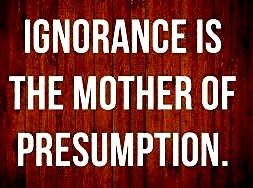
In Gully v Gully 2018 BCSC 1590 the court rejected a claim by a mother who transferred her property into joint tenancy with her son without his knowledge, and held that the transfer was a gift as per the law relating to intention at the time of the transfer as being determinative if it is a gift or a resulting trust.
In 1999 Ms. Gully purchased her home in Burnaby, using proceeds of sale from a previous home owned by her and her husband. In 2015, she added her son is a joint tenant on title based on estate planning advice. She received at the time, but did not advise her son that he had been added as a joint tenant of the property.
In 2017. The sun consented to judgment in the amount of $800,000, not knowing that he was on title to the Burnaby property.
The creditor registered a certificate of judgment upon his undivided half interest in the Burnaby property and sought execution proceedings.
the Court held that the transfer was a gift to the son and that the judgement creditor was correct in being able to file a judgment against the son’s interest in the property.
Ms. Gully sued asserting that she had no intention of transferring any part of her beneficial interest in the Burnaby property to her son, and that the registration of joint tenancy was made solely to facilitate the transfer of the property to her grandchildren on her death. This statement, however, was contrary to the statement of intention found in the will itself.
The court referred to Fuller v Fuller 2010 BCCA 421 BCCA on how the evidence of the transferors intention should be considered:
48. “ In Pecore the Supreme Court of Canada discuss the nature of the evidence to be considered. In general, evidence of the transfers intention at the time of the transfer ought to be contemporaneous, or nearly so, to the transaction—“
The court went on to discuss various authorities that common-law where the courts have traditionally viewed with mistrust the admissibility of evidence on post transfer conduct or statements, because of transferor could’ve changed his or her mind. Subsequent to the transfer and because donors are not allowed to retract gifts. The court also noted that evidence by a party to the litigation may be admissible against that party for a limited purpose if it is found the relevant to the issue of the transferors intention at the time of the transfer.
49 “ in adopting this more liberal stance on the admissibility of post transfer conduct, the court cautioned that the trial judge must assess the reliability of this evidence and determine what weight it should be given, guarding against evidence that is self-serving or that tends to reflect the change in intention. The assessment of the reliability of post transfer conduct admitted into evidence will include an assessment of the reasonableness of any inferences that are sought to be drawn from that conduct, including the inherent probability or in probability of competing explanations as to the transferor intent.




